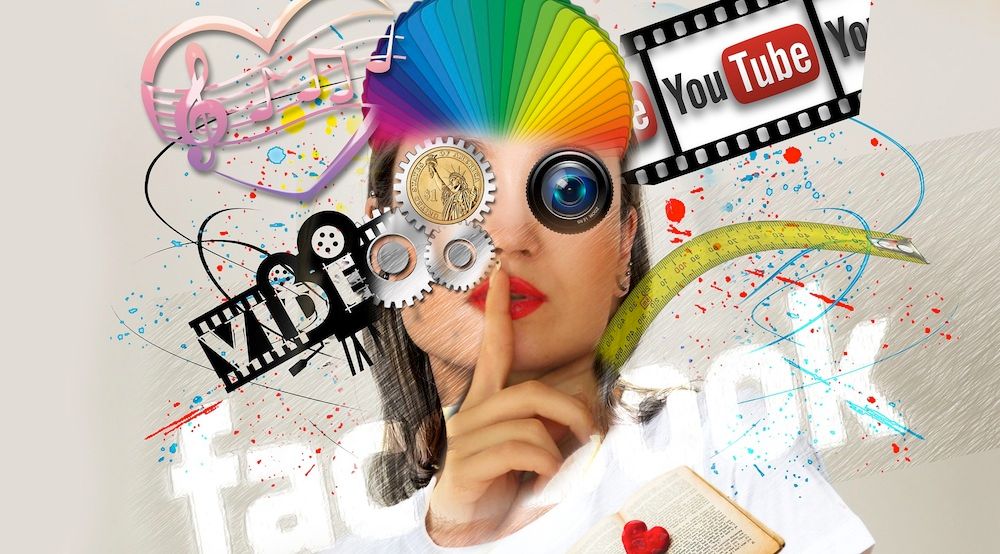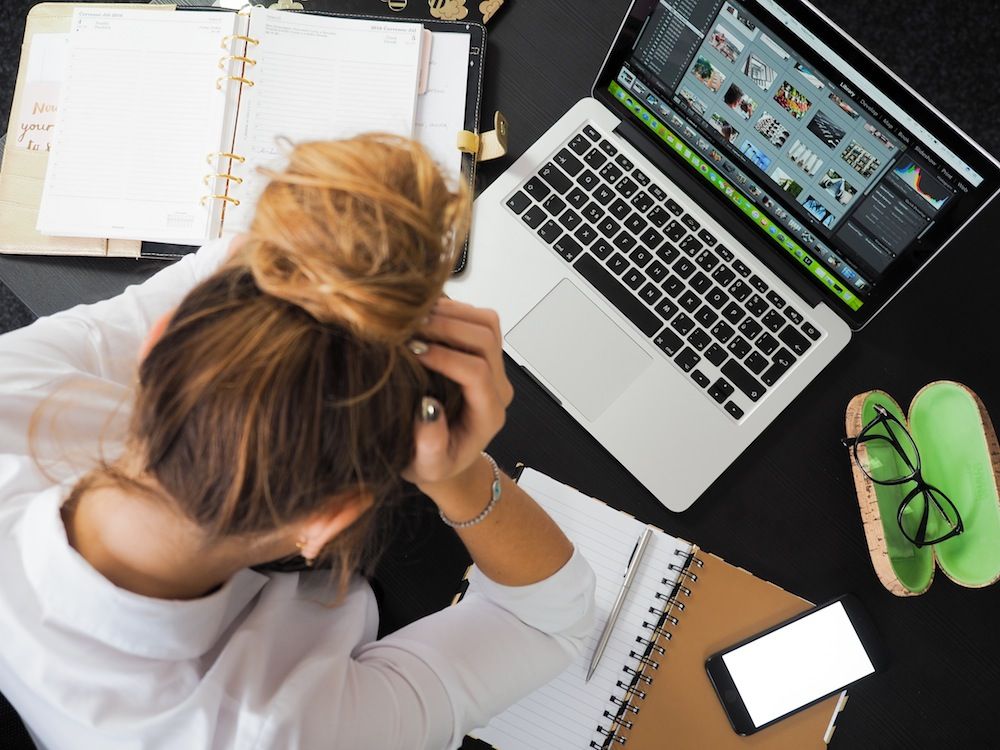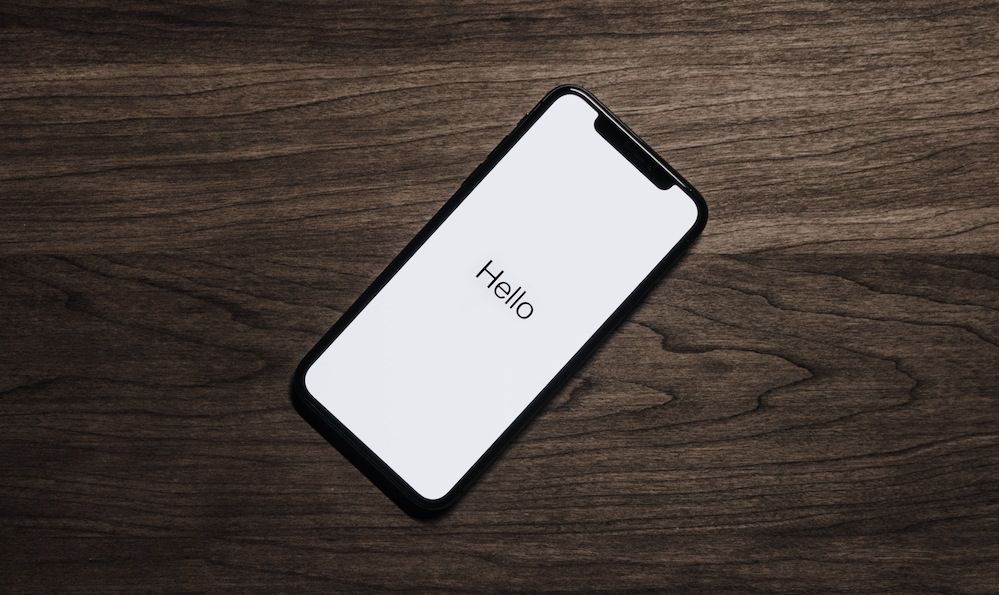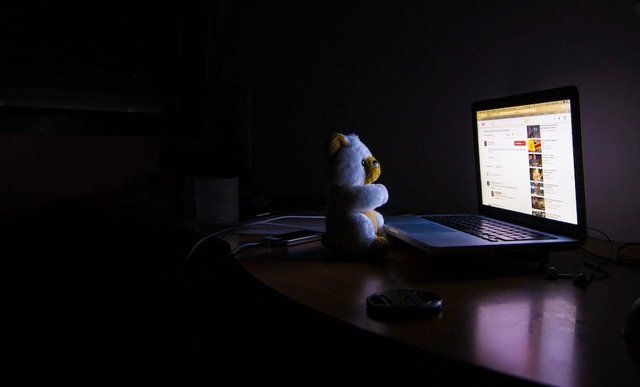Despite its name, social media has been linked with depression, loneliness and insomnia, especially in young people.

In fact, some of the original developers of social media platforms like Facebook and Google have openly criticised the ways in which these systems contrive to keep us hooked.
Former Facebook president Sean Parker (pictured below) last year described Facebook as "a social-validation feedback loop" that exploits "a vulnerability in human psychology".

Parker is not the only former social media executive to express such concerns about the "attention economy" – in other words, the business of grabbing people's attention, sometimes when they are at their most vulnerable, to turn their insecurities into sales. In a recent TED talk, former Google design ethicist Tristan Harris warned about how tech firms are devising ways to steal our attention via means like video autoplay.

The "like" button can be used not just to give the a brief dopamine hit, but as a means of collecting data on your preferences to sell to advertisers. "Likes" and clicks are monitored by algorithms for social profiling, and that valuable data can then be sold. (Steemit "upvotes" can have a similar effect, but a different purpose, which I'll be looking at in a future post.)
Do I look like an elderly man?
A few years ago I stopped using Google as my search engine of choice, because I was getting really poor search results, often apparently based on previous searches. Someone told me how I could view the profile Google had built up about me, and when I checked it, I found out that Google believed I was a 65-year-old man.
That probably explains why I kept getting ads on YouTube for Tena Men, a popular incontinence pad aimed at men. The ads were very funny, so I decided not to enlighten Google – in any case they seem to have since built up a more accurate picture of me.
Jokes aside, I do take this issue seriously. I don't want people whom I know nothing about building up vast data on all my movements and choices.
Just to let you know… you're being tracked
A few months ago, I was walking down the street to the post office, when I received a push alert that the location app ViewRanger, which I used to occasionally use when hiking in the mountains, was tracking my journey. I decided to delete the app there and then, because I was concerned that it might be using expensive phone data.

As I was deleting it, another push message came through, warning me that all the data that ViewRanger had passed on to the Apple Health app would now be deleted. I have never consciously used the Apple Health app, and I was very annoyed to learn that it had been storing data on my movements (though maybe I shouldn't have been surprised).
Dangers for young people?
Younger people seem to be more potentially at risk from the dangers of social media, like addictive or compulsive behaviour, and emotional pressures. I love internet technology and social media, but I think having grown up without it makes me careful about its usage.
Research published in the American Journal of Preventive Medicine found that young adults (19 to 32 years) with high social media use felt significantly more socially isolated than those with lower use of social media.
A Scottish study revealed that adolescents who were heavier users of social media and those who were more emotionally invested in it, reported impaired sleep quality, lower self esteem and higher levels of depression and anxiety.

And a 2013 study found that people felt increasing dissatisfaction with their lives, the more often they used Facebook.
There is evidence that social media can incite feelings of insecurity and lack of self-worth, as people (especially young people) compare themselves to others on the platform – how many friends or followers they have; how many "likes" their posts get; the feeling that everyone is looking great and having a great time – except for them.
I'd imagine that we all suffer these kinds of feelings from time to time.
My life's not THAT great, honestly...
When I was a teen, I would devour women's magazines, and looking back, I feel that they produced far greater feelings of insecurity with their unfeasibly skinny, airbrushed models and "celebrity lifestyles" than today's social media does – though I suppose it depends who you follow.
Some of my Facebook friends seem to revel in telling the world about their problems and health issues. Most of my friends use it for jokes and trivia. Maybe that's what happens as you get older.

Hooked!
One of the downsides of social media is its ability to draw you in and keep you engaged – hooked even. It can cast an alluring spell. You're right in the middle of some important work, but you decide to nip onto Facebook to wish a friend Happy Birthday.
When you open the page, there's a funny video of another friend's cat attacking the dog. You laugh at it, click "like" or the "haha" icon, and write a silly comment. Then a discussion catches your eye. You scroll down and add your opinion.
Suddenly you realise you've been on Facebook for 20 minutes, so it's time to get back to your work (but you've completely forgotten to write your friend a Happy Birthday message… )
An hour later, you remember the birthday message and the whole process starts again…
Research at the University of Texas found that just having your smartphone nearby, even switched off, could be a distraction and lead to worse test scores.

I recognise this. Sometimes a Facebook Messenger group chat starts, and I'm in the thick of it. Then I hear a What'sApp ping from my sister (who doesn't do Facebook). Then a friend sends a text. I find myself manically trying to engage in three conversations at the same time. If the phone rings… I ignore it, as it's probably a nuisance call. Unless a friend's name comes up. But who uses the phone these days anyway?
Yet the idea of leaving the house without taking the smartphone is unthinkable for most of us. It's like a comfort blanket.
Sleep disruption
The blue light from smartphones and computers is believed to be a hindrance to sleep. It can disturb the body's natural circadian rhythms, and it may even lead to disease.

Conversely, blue wavelength light is beneficial when received during the day, as it can stimulate the attention and improve mood. So it's important to avoid using your smartphone and any computer screens in the evening.
I think the best way to limit one's exposure to blue wavelength light in the evenings is to find other things to do. I often go to the climbing centre in the evenings – at least twice a week. I've found that doing a jigsaw an hour before bedtime really helps to relax my mind, and reading a book in bed helps me to drop off.
I'm not perfect. I have a habit of watching videos in the bath.
You've got mail!
I was surprised when my 16-year-old nephew recently announced that he was going to start writing letters, and asked his Facebook friends if any of them would like to write to him.
I think that's a nice idea, and in fact the thought of going on a technology-free silent retreat has a lot of appeal for me, just to see how I'd cope.
However… I personally think that social media, like alcohol, can have positive benefits IF you use it sensibly. In a future post I'll look at the positive attributes of social media and how to use it constructively.
.gif)
I think it can but it's a useful tool if used correctly. The whole point is balance, and using the advantages whilst minimising the negative effects. The key is to be in control, and education is important…
Downvoting a post can decrease pending rewards and make it less visible. Common reasons:
Submit
I definitely agree with you Adam, and I'll be writing another post on this. In fact, when I started to write this post, I thought the dangers of social media were being exaggerated, but when I looked into it further I was surprised at the amount of research linking many types of social media to depression, feelings of low self-esteem etc. But that's not the whole picture, and I agree that balance is the key.
Downvoting a post can decrease pending rewards and make it less visible. Common reasons:
Submit
Glad to see that your post got a vote from curie after I recommended it and @silentscreamer got it approved. Keep writing great posts
Downvoting a post can decrease pending rewards and make it less visible. Common reasons:
Submit
Thanks so much @sayee! Really glad you enjoyed my post.
Downvoting a post can decrease pending rewards and make it less visible. Common reasons:
Submit
welcome sir
Downvoting a post can decrease pending rewards and make it less visible. Common reasons:
Submit
social media has its uses and disadvantages. Hope, the younger generation realizes the importance of real life and get over the addiction
Downvoting a post can decrease pending rewards and make it less visible. Common reasons:
Submit
I think that's it in a nutshell. People need real life experiences, in addition to online events.
Downvoting a post can decrease pending rewards and make it less visible. Common reasons:
Submit
Social media can be evil if you take them too close and serious. I know some people who can even fall into depression after seeing that their new photos don't have no one's likes.
We must be careful using them.
Downvoting a post can decrease pending rewards and make it less visible. Common reasons:
Submit
Omg, that is bad
Downvoting a post can decrease pending rewards and make it less visible. Common reasons:
Submit
It's absolutely true @erikaflynn – and it could be just because the photo happened to be posted at a time when most people were out or something! I think that when people are feeling insecure and fragile, social media can magnify those feelings.
Downvoting a post can decrease pending rewards and make it less visible. Common reasons:
Submit
Its so crazy how social media has taken over our lives, you cant walk down the street without seeing everyone with they're head all in they're phone. Time are def changing. For kids in the next generation, this is all they know. SMH
Downvoting a post can decrease pending rewards and make it less visible. Common reasons:
Submit
It's sad, because they miss so much going on around them. And I wonder what it's doing to our brains.
Downvoting a post can decrease pending rewards and make it less visible. Common reasons:
Submit
Excellent post @natubat, it's all about balance but unfortunately that's hard for young and vulnerable users, I have to take a strong hard look at myself in this regard! Thank you.
Downvoting a post can decrease pending rewards and make it less visible. Common reasons:
Submit
Thanks @lizelle, and I'm glad you enjoyed my post. Yes, the same goes for me – there are times when I need to rein it in a bit.
Downvoting a post can decrease pending rewards and make it less visible. Common reasons:
Submit
I will have to do that for sure!
Downvoting a post can decrease pending rewards and make it less visible. Common reasons:
Submit
I agree completely - I've been using social media less and less, and have found myself to be happier in turn. The "feedback loop" is seriously a real thing, and it just gets worse and worse really!
I like your analogy to alcohol though - because especially as a media artist, social media management is a necessity. A glass of wine in the evening is enough! ;)
Downvoting a post can decrease pending rewards and make it less visible. Common reasons:
Submit
Definitely - I think social media is there to be enjoyed and dipped into now and again, not something that takes over your life. Just like wine :)
Downvoting a post can decrease pending rewards and make it less visible. Common reasons:
Submit
Es verdad la redes sociales es el bum en la actualidad, es normal ver en la casa o en la calle a las personas compartiendo y tal vez (tristemente) viviendo más con sus celulares (compartiendo en redes sociales como instagram, facebook, twitter, youtube entre otros) que viviendo el presente.
Los niños y adolescentes viven su día a día con esta tecnología dándole múltiples usos que aveces ni si quiera notamos en que llegando así a estar en muchos peligros y e representante ignorando lo que pasa.
Tambien los adultos no se quedan atrás, adultos mayores ya están compartiendo más con redes sociales como WhatsApp (creando grupos de familias y enviando cadenas "típico" jeje), que estar haciendo otras cosas diarias normales de ellos. De cualquier forma me gusto tu publicación. Saludos.
Downvoting a post can decrease pending rewards and make it less visible. Common reasons:
Submit
Gracias @clariiluz por tu comentario, y estoy muy contento de que hayas disfrutado leyendo mi publicación. Sí, los peligros de las redes sociales son preocupantes, aunque también hay beneficios, sobre los que escribiré pronto.
Downvoting a post can decrease pending rewards and make it less visible. Common reasons:
Submit
Great post! :) I'm working with social media and I must admit that there are more and more aspects of them that I don't like. I guess I will have to change my job haha :D
Downvoting a post can decrease pending rewards and make it less visible. Common reasons:
Submit
Thanks! I do think there are positive aspects to social media too, which I've just written about in another post! It's all about balance I suppose.
Downvoting a post can decrease pending rewards and make it less visible. Common reasons:
Submit
Congratulations! This post has been chosen as one of the daily Whistle Stops for The STEEM Engine!
You can see your post's place along the track here: The Daily Whistle Stops, Issue # 76 (3/17/18)
The STEEM Engine is an initiative dedicated to promoting meaningful engagement across Steemit. Find out more about us and join us today!
Downvoting a post can decrease pending rewards and make it less visible. Common reasons:
Submit